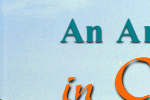 | 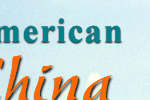 | 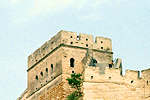 |  |
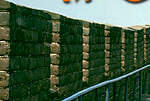 | 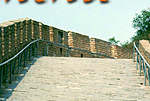 | 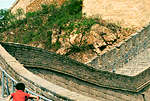 | 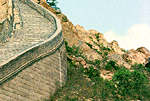 |
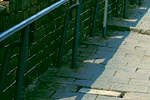 | 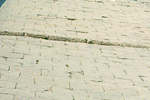 | 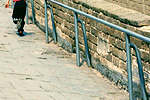 | 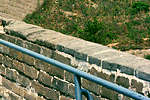 |
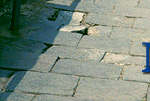 |  |  | 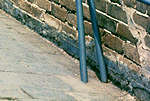 |
|
November 8, 2002 The
Last Emperor
|
|
The flower pots lining the main streets of Chongqing and Chengdu are full of fresh lilys and roses, heralding the 16th National Congress. Most Chinese notice the flowers but ignore the banners flapping above touting the nationís meeting of the minds. No
mater how many foreign journalists scramble to get "the story,"
the outcome is of little importance to the average Chinese taxi
driver, shop owner, engineer, businessman etc. The days of decrees
from one man on high are over. They ended with Deng Xiao Ping and
Jiang Zeminís nebulous Three Representatives delivered the Jiang was handpicked by Old Deng as his successor after the Tiananmen crackdown for his "quick and clear action" in Shanghai at the beginning of the protests. Jiang closed the World Herald and fired its boss, suppressed the students and toed the Party line when many were questioning the qualities of the leadership. Those that questioned, Zhao Ziyang for one, were destroyed in the aftermath and those that "held strong," Li Peng and Jiang to name two, were allowed to keep their positions and expand their empires of corruption. Now, Li Peng faces the same fate as Zhao in his power struggle with Zhu Rongji and Jiang is on his way out, already letting go of his "legacy," the oft-ridiculed and little understood theory of the Three Representatives. Jiangís successor, Hu Jintao, is little known and lacks the revolutionary experience of his predecessors. One can only expect that the center of China will grow weaker under his leadership as the Black Societies and new members of the Communist party, namely the capitalists of China, tighten their grip on the Chinese economy and political machine. The taxi drivers of the nation, the finest barometer of political thought amongst the populace, love Old Deng and sneer at Jiang. The leaps made in the 1980s and early 1990s in terms of living standards and personal freedom have slowed down considerably and everyone is aware of the plight of the lowly peasant – shouldering the hefty burden of feeding 1.3 billion souls while at the same time hewing the stones that eventually become the bossís office, the expressway upon which the boss shows off his new Benz and the walls that separate the boss from the rest of China. The Party, with Jiang Zemin at the core, has given the Chinese people a vision of the Promised Land: A future with tribute coming from all eight directions, a future in which even the Americans must bow down before the might of a resurgent China. Every columnist in the world (including me) has written about the future Asian superpower and the inevitable impact on global economics and culture that a powerful China will have. Most people believe it, especially the Chinese. But China will enter this new phase of its history without its most consistent and reliable ally: an emperor with the Mandate from Heaven. As in the legends of ancient Greece, the old master gives the student the tools, then disappears into the wilds to live as a hermit, so has Old Deng given Jiang a rising dragon to ride, and now Jiang jumps off and the whole crowd tries to take his place. Jiang is no emperor. He may stay behind the curtain and try his best to emulate his mentors, but China has already progressed past such folly. The curtain has been torn down and the emperor has been exposed. The WTO is bringing investors from around the globe into the deepest reaches of China and the center cannot keep its hand in every pie. The Sichuanese will deal with Siemens as the head honchos in Xinjiang will deal with BP Amoco and friends. The whole Opening Up of the West campaign has been plagued by statements and hand outs from Beijing that go only as far as the deepest pocket in the Province. In the past, the Emperor hired and fired Provincial officials and made a note to keep Sichuanese officials in Heilongjiang and vice versa, to keep them from building a power base. No longer the case. Here they say "A dragon is no match for the local snake." What this means for the future of China is that the Provinces are relatively on their own to solve the problems of unemployment, underdevelopment and corruption. The center can only do so much, and with companies going straight to the source in this globalized economy, there are deals going on worth billions of dollars that the center has little or no control over. Even the creation of special municipalites beholden unto the center and not the Provincial government has little effect. The most powerful gangsters in China hail from such municipalitues: Shenzhen, Shanghai, Hong Kong, Xiamen and Chongqing are virtually ruled by the Black Society. Who is and who isnít black these days in China? You want to open a club? Sell cars? Guide Germans through the maze of Chinese business connections? Better talk to Skinny Yang. The 16th National Congress is a rubber stamp affair with balloons, firecrackers and beautiful people singing pretty songs. The reporters will be all over it hoping to crack through Chinese secrecy. But they're in the wrong spot. The real power, and with it the real secrecy, lies in the teahouses, brothel and bars of the Provincial capitals where the newest inductees into the Party are laughing at Jiang and counting their money. New Hu will most likely close his eyes, hang on tight, and hope Zhu, Jiang and other old hands can guide him through the mess. Sidenote: Iíve always thought political leaders around the world mirror each other and the times in which they find themselves: will Hu be a puppet and posturer like Tony and Little Bush? Will he be slick and smiling like Bill, Schroeder and Koizumi? It seems Billís time has passed ... -Sascha Matuszak Please Support Antiwar.comSend contributions to Antiwar.com or
Contribute Via our Secure Server Your contributions are now tax-deductible
|
Sascha Matuszak
is a teacher living and working in China. His articles have appeared
in the South China Morning Post, the Minnesota Daily,
and elsewhere. His exclusive Antiwar.com column (usually) appears
Fridays. Archived columns 'We
Make You Play Bad Card' The
Future of East-West Rapprochement Tiananmen's
Legacy: The Forgotten Rebellion Deciphering
the Chinese Smile Why
China Can Disregard US Anger Arming
the World: What the US Fears 1.3
Billion Problems For China China's
New Post-9/11 Status
Sweep 'Em Off the Streets
Chinese Embrace Progress China's
Afghan Agenda New
War May Reveal New Superpower, Part II New
War May Reveal New Superpower A
Chance for a New Friendship? Cheating
as a Way of Life China's
Internet Generation Free
Markets or Supermarkets Sailing
Towards World Significance China's
Youth Revolution |
